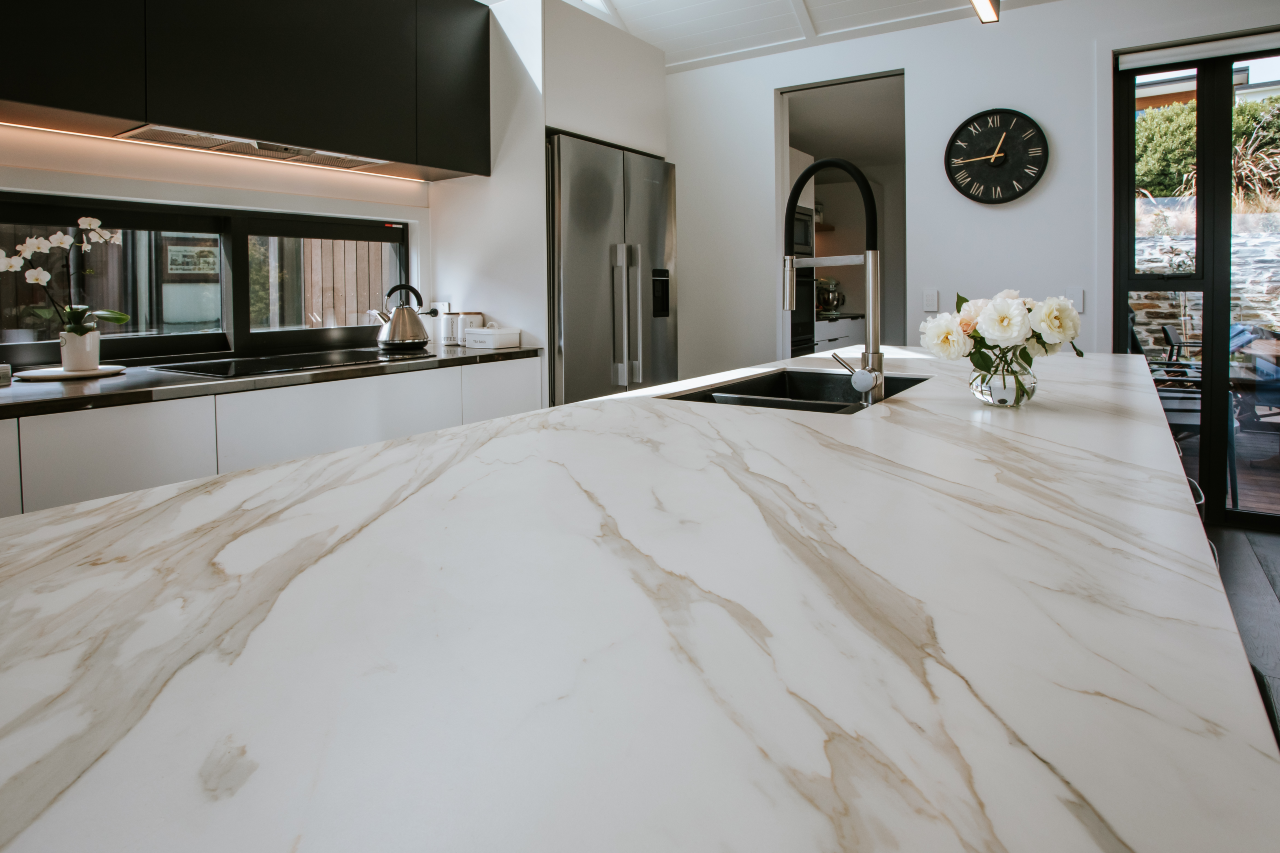Necessary Tips for Keeping Your Cooking Area Benchtops for Lasting Charm
Preserving the elegance and longevity of your kitchen benchtops requires a thoughtful technique to care and cleaning. Regular maintenance methods, such as utilizing mild cleansing options and protective procedures, can significantly expand the life of these surface areas. It's important to comprehend which products can maintain their integrity while stopping damage. In addition, dealing with spills immediately and using straightforward protective strategies can make an obvious difference. With different products and finishes readily available, the right techniques may differ-- exploring these subtleties can reveal unanticipated insights for your cooking area treatment routine.
Normal Cleaning Up Practices
Keeping an immaculate kitchen benchtop begins with implementing routine cleaning practices. This simple practice not only maintains the benchtop looking fresh but also decreases the risk of contamination.
In addition to everyday upkeep, an once a week deep clean is a good idea. Throughout this procedure, consider using a more detailed service, such as a mild multi-surface cleaner, to tackle any kind of stubborn discolorations or deposits. For products like granite or quartz, it is necessary to adhere to maker recommendations for cleansing products to maintain their stability.
Pay unique attention to high-traffic locations where spills are much more most likely to happen, and do not fail to remember to cleanse the edges and edges where dust can collect. Normal cleaning not just enhances the long life of your kitchen benchtop yet also makes certain a risk-free and welcoming cooking environment. By creating these practices, homeowners can keep the charm and capability of their kitchen surface areas in time.
Staying Clear Of Harsh Chemicals
When it involves cleaning kitchen benchtops, selecting the appropriate cleaning products is vital (Kitchen Benchtops). The long life and aesthetic charm of your benchtops can be dramatically compromised by the usage of rough chemicals. Many traditional cleansing agents consist of unpleasant materials that can scratch and dull surfaces, resulting in unattractive marks and a decrease in their overall life expectancy
In addition, rough chemicals can react negatively with certain materials, such as natural rocks or crafted surface areas, possibly resulting in discoloration or degradation. Acidic cleansers can erode the finish of granite or marble, while bleach can damage synthetic surfaces. It is crucial to decide for pH-balanced, mild cleaning options that successfully eliminate dust and discolorations without risking harm to your benchtops.
Furthermore, numerous eco-friendly items are offered on the market, which not just use risk-free cleaning alternatives however also add to a much healthier kitchen area atmosphere. If you choose a do it yourself technique, a mix of cozy water and moderate soap can be highly reliable (Kitchen Benchtops). By preventing harsh chemicals, you can keep the charm and integrity of your kitchen area benchtops for many years ahead
Utilizing Cutting Boards
Making use of cutting boards is essential for shielding your kitchen area benchtops from the ground up and damages while preparing food. These boards serve as an obstacle between your blades and the surface of your benchtops, significantly lowering the risk of undesirable marks and use. It is recommended to use a reducing board made from products such as wood, bamboo, or plastic, as each offers one-of-a-kind advantages.
Wooden cutting boards are recognized for their durability and knife-friendly residential properties; they can aid maintain your blades sharp. Bamboo boards are an eco-friendly selection that is light-weight and resistant to knife scars. Plastic cutting boards, on the various other hand, are simple to clean and commonly dishwasher secure, making them a practical alternative for everyday usage.

Sealing and Securing Surface Areas
Safeguarding your cooking area benchtops extends beyond using cutting boards; securing the surface areas plays a critical duty in safeguarding versus stains, wetness, Check Out Your URL and put on. The best sealer can enhance the toughness of products, such as granite, quartz, and wood, ensuring they keep their visual appeal gradually.

Application of the sealer must be carried out in a clean, completely dry setting, complying with the producer's guidelines for ideal results. Normally, this entails cleansing the surface thoroughly, using the sealant evenly, and permitting it to treat as recommended. Routine maintenance, including resealing every 1-3 years depending on use and product, will certainly boost protection and prolong the life of your benchtops, guaranteeing they continue to be a magnificent focal factor in your kitchen area.
Addressing Spots Quickly
Discolorations on cooking area benchtops can rapidly come to be a considerable problem otherwise resolved immediately. The longer a tarnish remains, the harder it ends up being to remove, possibly bring about permanent discoloration and damage to the surface. Consequently, it is vital to take on spills and discolorations as quickly as they occur.
Various products require details approaches to stain removal. As an example, non-porous surfaces like quartz can usually be cleaned with mild soap and water, while porous materials, such as all-natural rock, might require customized cleansers to avoid fluid infiltration. Constantly describe the manufacturer's guidelines for the best cleaning practices.

Regular maintenance, consisting of securing porous surfaces, can significantly decrease the danger of discoloration. By promptly attending to spills and understanding the certain needs of your benchtop material, you can maintain the aesthetic appeal and capability of your kitchen click for more surfaces for many years ahead.
Final Thought
In conclusion, preserving the beauty and performance of cooking area benchtops requires adherence to necessary cleaning methods, evasion of rough chemicals, and making use of protective steps such as reducing boards. Routine securing of permeable materials and timely focus to spills and stains are vital for preserving the integrity of surface areas. By carrying out these methods, the longevity and visual charm of kitchen benchtops can be significantly improved, guaranteeing an excellent and sturdy culinary atmosphere.